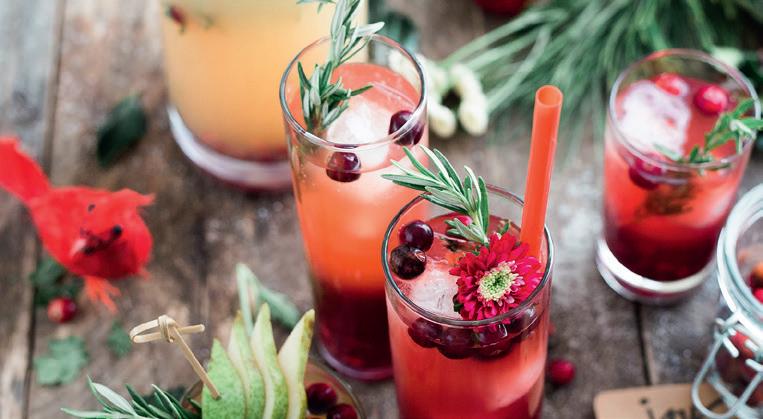
2 minute read
Herb it into Summer
from henry summer 2020
by ninetyblack
A flavoursome and fuss-free boost for salad, body and soul

If your dream of an abundant summer vege garden has gone to seed and visions of homegrown cucumber, lettuce and zucchinis tossed to the bottom of the compost heap – don’t settle for store-bought salad just yet. Where there’s a will there’s a way – and where there’s herbs involved, there’s plenty of growing to be had.
Good to grow
“Herbs – generally speaking – are dominantly perennials, pop them in the ground and they’ll grow all year,” explains Donna Lee, herb specialist and director of Cottage Hill Herbs. “With the exception of basil, calendula and camomile – which are annuals – most main varieties of herbs will stay put and self-seed.” And, most herbs aren’t too fussy about when and where they’re planted either – making them the ideal Christmas saviour to fill in the garden or pop a few pots of colour and fragrance into the air the before the holiday season well and truly kicks off. “Most of the main herb varieties can be planted any time of year and will survive. Coriander though can be a little more temperamental and typically needs to be planted – or seeds literally thrown into the garden – in late March,” explains Donna. “As a rule of thumb, plant herbs in a space as close as possible to their natural environment – don’t forget most herbs hale from the Mediterranean. So, in pots, amongst rocks and tucked into corners.”

Abundantly beneficial
And, whilst sprucing up the salad may be top of the to-do list, don’t limit your herb growing options or uses, advises Donna. “Your basil, chives, parsley, mint are all great for culinary purposes – salads, oil infusions, salt rubs – but many easy-grow herbs can be used in teas and tinctures to aid sleep, support the immune system and provide antibacterial qualities.” Take for example lemon balm which is hardy, can be made into hedgerows, self-seeds and adds amazing flavour to salads. “The leaves can be steeped to make a tea, flavour custards and
Dyani Van Basten Batenburg
even ice blocks. It promotes antistress qualities and is also a big bee attractor.”
Breathe easy
Just like lemon balm, thyme, calendula, camomile and elderberry promote similar wellness and beneficial properties. “Thyme is also a big one with the bees and is brilliant for purifying the air – making it an ideal for those with respiratory problems. Camomile for sleep and herby shrubs like lemon verbena and elderberry entail a long list of positives – and aren’t fussy growers.” In fact, elderberry bushes will take to soil countrywide – volcanic or coastal – they’re not fazed. “One bush is plenty and you can keep it trimmed in a pot if you like,” says Donna. “Elderberries are definitely having their heyday. The flowers and berries can be made into jams, syrups, wine and preserves and are renowned for their ability to boost the immune system and fight off colds and flus.” And, unlike yesterday’s lettuce, herbs are the plant that keep on giving. “Take your herb excess from summer growing and tie them in bunches and hang them in a warm, dry place for winter use. The hot water cupboard is ideal or aim for no more than 38 degrees in a dehydrator – you don’t want to destroy the oils.”










